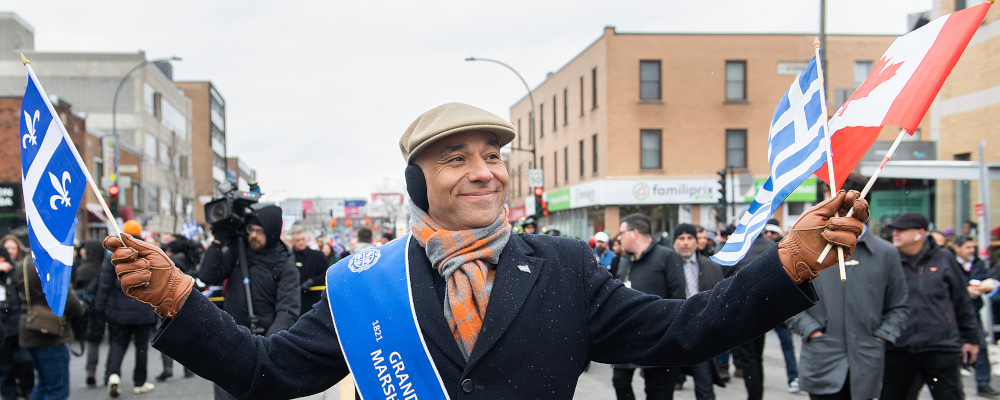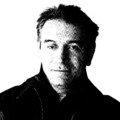Review of: The Great Experiment: Why Diverse Democracies Fall Apart and How They Can Endure
Author: Yascha Mounk
Publisher: Penguin Random Press 2022
The question in The Great Experiment: Why Diverse Democracies Fall Apart and How They Can Endure (2022) — by political thinker Yascha Mounk, is whether diverse democracies can survive as they adjust to greater numbers of immigrants. The West could certainly use more people as birth rates decline, and millions in poor countries are desperate to leave for a better life, including the educated. The question is, how best to do it?
Professor Mounk, who teaches international relations at Johns Hopkins University, argues we can get along, but not without significant adjustments on the part of western democracies. Mounk reminds his reader that diverse societies — societies with different races, religions, classes and cultures — have been sources of conflict throughout history. The Great Experiment is about whether democratic nations can absorb more diverse groups and prosper without the conflicts and discrimination of the past. According to Mounk, democracies have done a poor job absorbing different ethnic and religious groups and forging “fair and inclusive societies.” The author does admit that things have improved.
At the end of the Second World War, fewer than one in twenty-five living in the U.K. were foreign-born compared to one in seven today. Yet European countries remain overwhelmingly white and monocultural. The most diverse country in Europe is the Netherlands, and it has 84 percent whites. And when one race maintains political control in democracies, minorities tend to be dominated. According to Mounk, the problem is built into democracy itself; majorities will always find ways to protect their interests. Now that Europe and North America, with other countries including Japan and Australia, are opening to more immigration, Mounk sees danger ahead. In Poland and Hungary, government policy aggressively protects dominant white cultures, while Italy has turned against immigration with the endless flood of refugees landing on its shores, causing a rift with its European neighbours.
If western democracies are to succeed, Mounk insists the west must adapt and become more inclusive, and that means transferring political power to minorities even though they may never make up the majority. The solution is for democracies to reject their forms of “cultural purism” because Mounk believes “cultures are fluid constructs that reflect the ever-changing choices and predilections of their members.”
Yascha Mounk is a man of the political Left with compassion for those with little or no political power. He seems heavily influenced by philosopher Jean-Jacques Rousseau who held that we are born innocent, and society instills our faults. But it is folly to think they can change without much effort or consequence. This isn’t a message many want to hear; they hold that most disparities between people reduce to prejudice. Then there is the problem of diminishing “trust” among different ethnic groups documented in numerous studies. And trust is crucial if democracies and communities are to flourish. He admits we “must offer a realistic account of human nature” if the great experiment is to succeed, but here we might look to behavioural psychology for answers.
Then there is the problem of liberalism itself. Liberal ideology was adapted to stop the bloodshed from religious wars in 17th-century Europe, ending with the Peace of Westphalia. Some scholars believe liberalism eventually failed because the state is no longer an impartial arbiter among groups but an advocate, for example, by reducing all religions to “mere opinion.” This is the position of political theorist Patrick Deneen at Notre Dame University. Today, the ideal western state is one of deep secularization. Yet Mounk seemed surprised and disappointed when minarets were prohibited in Switzerland. This, in miniature, was a clash of civilizations where two cultures came together with little understanding of each other.

It is odd that Mounk doesn’t discuss Angela Merkel’s policy to accept over a million Syrian immigrants in 2015. The absence of that policy hangs in the background begging for analysis. It is generally viewed by many as a humanitarian success story, but it was hardly a smooth transition that caused a rift in Europe. Mounk mentions that most immigrants “embrace the core values of the societies where they live” and believe in democratic principles. For the most part, this is true. Canada is an example of a thriving democracy that does a good job of integrating immigrants, but that doesn’t mean the underlying tensions between cultures and races have disappeared.
Diverse democracies are always a work in process, and we should strive to better integrate people from different races and backgrounds. That struggle happens daily in democracies worldwide.
Recommended for You
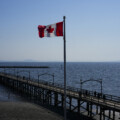
‘Not a guide to practical action’: David Frum on 60 years of George Grant’s Lament for a Nation

Ginny Roth and Brian Dijkema: Why Ontario should allow independent schools and unlock true choice in education
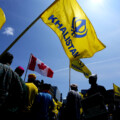
Need to Know: Canadian multiculturalism is ‘dangerously adrift’
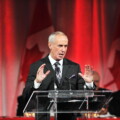
‘Disloyalty to a friend’: Sean Speer on the cultural tension captured by the recent clash between Don Cherry and Ron MacLean

